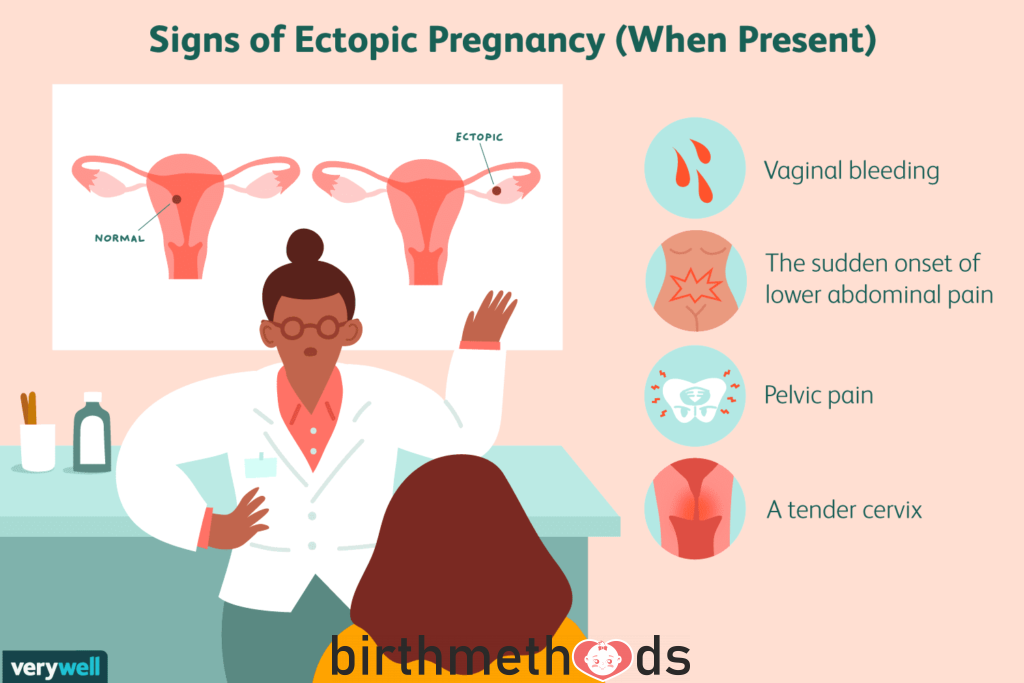If you are the victim of an ectopic pregnancy, there are several things you need to know. First, you should know the warning signs. This will help you get started on the road to recovery. Second, you should know the causes of ectopic pregnancy. This will help you understand whether your baby can survive or not.
What are the warning signs of ectopic pregnancy?
Early diagnosis is important to avoid complications from ectopic pregnancy. You should wear condoms, undergo regular tests, and see a doctor if you’re unsure about the condition. Also, consult a physician if you’ve had a history of endometriosis. It’s also important to eat healthily and take a daily prenatal vitamin.
The symptoms of ectopic pregnancy may appear as early as week four, but most of them occur in weeks six to nine. They can look like early pregnancy symptoms, which can make the condition difficult to diagnose. You might experience sharp, cramping abdominal pain. The blood may not be as vicious as your usual menstrual fluid. You may also experience shoulder pain or fainting. Often, the pain gets worse when you strain or move.
If the pregnancy becomes large enough, it may rupture the fallopian tube. In this case, it’s critical to see a doctor, as it can result in bleeding or organ rupture. An ultrasound will be necessary to confirm the condition. If the pregnancy continues without treatment, the fetus may die.
Other warning signs of ectopic pregnancy include vaginal bleeding, missed period, and pain in the pelvic area. Sometimes, these symptoms occur without any other pregnancy symptoms. Symptoms can range from mild to severe, and if you’re not sure, you should schedule a check-up with a doctor.
Early symptoms of ectopic pregnancy include abnormal vaginal bleeding, abdominal pain, or cramping in one side of the lower abdomen. Although these symptoms can be difficult to recognize, they should be a cause for concern. You should visit a doctor immediately if you suspect you’re experiencing an ectopic pregnancy.
Ectopic pregnancy is a very serious condition that can cause serious health risks for the mother and baby. Fortunately, most women who suffer from this condition can go on to have a healthy pregnancy. But, if the condition persists for too long, it can lead to severe bleeding or even death.
Once diagnosed, ectopic pregnancy is treated successfully. Treatment options include surgery to close the fallopian tubes and an intrauterine device, or IUD. Women who have had previous ectopic pregnancies have a three to six percent chance of experiencing a recurrence.

Can a baby survive an ectopic pregnancy?
An ectopic pregnancy occurs when a fertilized egg implants outside the uterus. Typically, this happens in the fallopian tube, which connects the ovaries to the uterus. However, it can also occur in the cervix, the opening to the vagina, or the abdomen. Although extremely rare, these pregnancies can be life-threatening for the mother and unborn child.
The condition can cause intense pain in the lower abdomen and can lead to severe medical problems. You should contact your healthcare provider immediately if you suspect you may be suffering from an ectopic pregnancy. You should avoid trying to conceive without medical attention. If you are considering IUD or tubal ligation, consult your healthcare provider.
Despite the high mortality rate and high morbidity rate, some women do successfully give birth to a live baby. The incidence of abdominal pregnancy ranges between one in every 10,000 pregnancies and one in every 30,000. The first report of abdominal pregnancy occurred in 1708. It is often missed during a woman’s pregnancy and is usually diagnosed after delivery, due to its high risk.
An ectopic pregnancy rarely produces a viable embryo. It is estimated that 90% of ectopic pregnancies occur in the fallopian tubes and do not implant in the uterus. This is because the ectopic pregnancy does not have the blood supply or structure needed to support the placenta or provide circulation to the developing fetus. It is not possible to transplant the ectopic embryo into the uterus using current technology.
If an ectopic pregnancy is diagnosed during early pregnancy, expectant management may be used to prevent complications and help the woman get pregnant again. If this treatment fails, the patient may have to undergo surgical intervention, or undergo methotrexate, a medication that is known to cause serious side effects.
There are many women who are able to get pregnant again after experiencing an ectopic pregnancy. However, the recovery rate depends on many factors, including the cause of the pregnancy, the remaining fallopian tube, and the woman’s willingness to risk another ectopic pregnancy. After one or two ectopic pregnancies, the chances of getting pregnant again are 15% or greater, while women with more than two ectopic pregnancies have a 30% chance of experiencing another.

How soon would you know if you have an ectopic pre
An ectopic pregnancy can be a serious condition. It can cause bleeding and organ rupture. Other symptoms include dizziness, lightheadedness, shoulder pain, and low blood pressure. If you experience these symptoms, you should see a doctor immediately.
There are some symptoms of an ectopic pregnancy that you should look for. Some of them may be similar to those of early pregnancy. You should get a pregnancy test and be referred to an Early Pregnancy unit. Bleeding that lasts longer than your normal period may be indicative of an ectopic pregnancy.
Ectopic pregnancy is relatively rare in the U.S. and less than 50 people die from it each year. The good news is that there are many ways to detect it early and treat it as quickly as possible. You can even get grief counseling to help you cope with the pain. While a harrowing experience, ectopic pregnancy is not likely to affect your future fertility. In fact, more than two-thirds of women treated for an ectopic pregnancy go on to conceive in the next two years.
A doctor will likely recommend either medication or surgery to treat an ectopic pregnancy. In some cases, however, it may not be necessary to undergo any treatment, but you should still visit your doctor for a checkup. In some cases, the fertilized egg continues to grow in the fallopian tube and can rupture. During a rupture, the fallopian tube can no longer carry the fertilized egg to the uterus. This can lead to severe internal bleeding and shock.
Some early symptoms of an ectopic pregnancy include pain in the tummy or pelvic region. While some of these symptoms are common in early pregnancy, it is still important to see a doctor as soon as possible. If you experience severe abdominal pain, you should go to an emergency room.
An ectopic pregnancy is a medical emergency and should be treated quickly. If it is not treated right away, it can lead to severe bleeding and the baby can die.

What are the 3 causes of an ectopic pregnancy?
An ectopic pregnancy can occur at any time during pregnancy. It can begin with pregnancy symptoms, such as breast tenderness and nausea, or it can develop without pregnancy symptoms at all. In either case, you should contact a doctor as soon as possible. In addition to pain in the pelvic or abdominal area, you may also experience bleeding. The blood will be lighter and less viscous than your normal menstrual fluid. A doctor may also recommend a test called an ultrasonogram to determine the location of the pregnancy. An ectopic pregnancy can be life-threatening and should be treated right away.
While no one can prevent an ectopic pregnancy, there are several lifestyle changes that can lower your risk. Avoiding smoking and maintaining a healthy weight is important. Also, preventing STIs is a good idea, especially for women who want to conceive. Women who have had an ectopic pregnancy in the past are at an increased risk for future ectopic pregnancies.
If you have a high risk for an ectopic pregnancy, you should consult your doctor as soon as possible. She may take extra precautions to detect your ectopic pregnancy, such as checking your hormones and scheduling an early sonogram. Once the pregnancy has been identified, it will be removed by medicine or surgery. The medicine used to remove an ectopic pregnancy is methotrexate, which stops cells from growing, ending the pregnancy. The body then absorbs the ectopic tissue.
An ectopic pregnancy occurs when a fertilized egg grows outside of the uterus. Most of the time, this is in the fallopian tube, although it can occur in the cervix, ovary, or belly. In rare cases, the pregnancy may progress far into pregnancy before it is detected. In some cases, an ectopic pregnancy can even result in a life-threatening hemorrhage.
Symptoms of ectopic pregnancy include abdominal pain, irregular vaginal bleeding, and pelvic tenderness. An ectopic pregnancy may be diagnosed by an ultrasound or a blood test for the pregnancy hormone hCG.
Our previous post Recognizing Pregnancy Symptoms in our article Can a baby survive in a molar pregnancy?, How long can a molar pregnancy go undetected? ve Pregnancy Symptoms information about.














